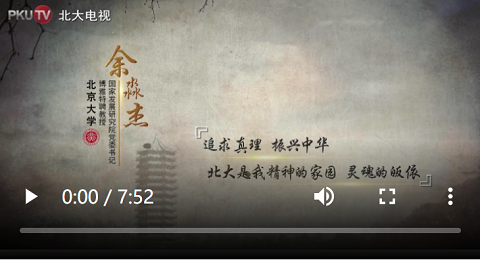MNI INTERVIEW: Sino/US Trade War Could
--If U.S. Increases Pressure On Beijing, China Ready To Act: Advisor
BEIJING (MNI) - The current small-scale trade confrontation between China and the U.S. is likely to escalatewith China prepared to take a toughened stance if the U.S. increases pressure on Beijing in the coming weeks, a Chinese government trade advisor told MNI in an exclusive interview.
"I think it's still not the time for Trump to stop, he will likely intensify the tension based on his style and extremeself-ego," said Yu Miaojie, an American-educated trade expert who advises Chinese government departments such as the Ministry of Commerce, Ministry of Finance and the State Council's Counsellors' Office.
"If the U.S. still insists on acting so unreasonably, China is well aware that the U.S. will only stop when it feels real pain," Yu added, referring to a situation where China scales up sanctions on American exports to the country, hurting core interests and putting pressure on domestic U.S. inflation, thus impairing the support of Americans for a trade war.
The past weekend saw the world's two largest economies' trade confrontation heat up. But it also saw the firstformal talks between highest-ranked officials from both sides since the conflict escalated last week.
--WORK TOGETHER
Liu He, China's newly-elected vice premier and senior economic advisor to President Xi Jinping's, stressedSaturday during a phone call with U.S. Treasury Secretary Steven Mnuchin that Beijing is ready to defend its national interests. According to a report by the official Xinhua News Agency, Liu urged that both countries remain rational and work together to maintain the stability of their trade and economic relationship.
"China has no reason to withdraw at this point," noted Yu, currently deputy director of the National School ofDevelopment at Peking University.
China was forced to respond in a trade war started by the Trump administration as recent trade restrictions imposed by the U.S. placed hurdles for China's strategic national development plan, not to mention the large
volume of related tariffs, he said.
President Donald Trump unveiled tariffs totalling $50 billion on Chinese imports last Friday and directed Mnuchin to consider further restrictions on Chinese investment in the States.
The U.S. tariff package mainly targets China's higher-end manufacturing sector which the country is aiming to grow as part of its "Made in China 2025" plan.
Hours after Trump's disclosure of the tariff package, China's Ministry of Commerce announced import levies on U.S. products worth $3 billion in order to offset China's losses due to the U.S. tariff hike.
China's retaliation is seen as moderate compared to the U.S. trade sanctions. Yu also viewed China's move as a "symbolic gesture", as the country is restrained from a full-scale trade war which will weigh on economic
growth for both sides, bringing headwinds for global trade and economy.
"It's still too early to say it's a trade war yet," Yu told MNI, saying soybeans, American automobiles, aircrafts will be next round of targets for China to increase sanctions.
His comments echo with a suggestion by former China Finance Minister Lou Jiwei over the weekend. At a forum in Beijing, Lou said China's retaliatory measures so far are "weak" and if he was the government he
would first target the above three categories of American products.
Though some said China may devalue its currency, Yu disagreed, saying the People's Bank of China is seen trying to stabilize the yuan and let market forces play a bigger role. Unless the U.S. intervene first to weaken the dollar, China will not make such a move first, Yu added.
However, China is likely to sell US. treasuries if the trade confrontation is further to deteriorate, Yu said.
Published on MNI (https://www.marketnews.com)



